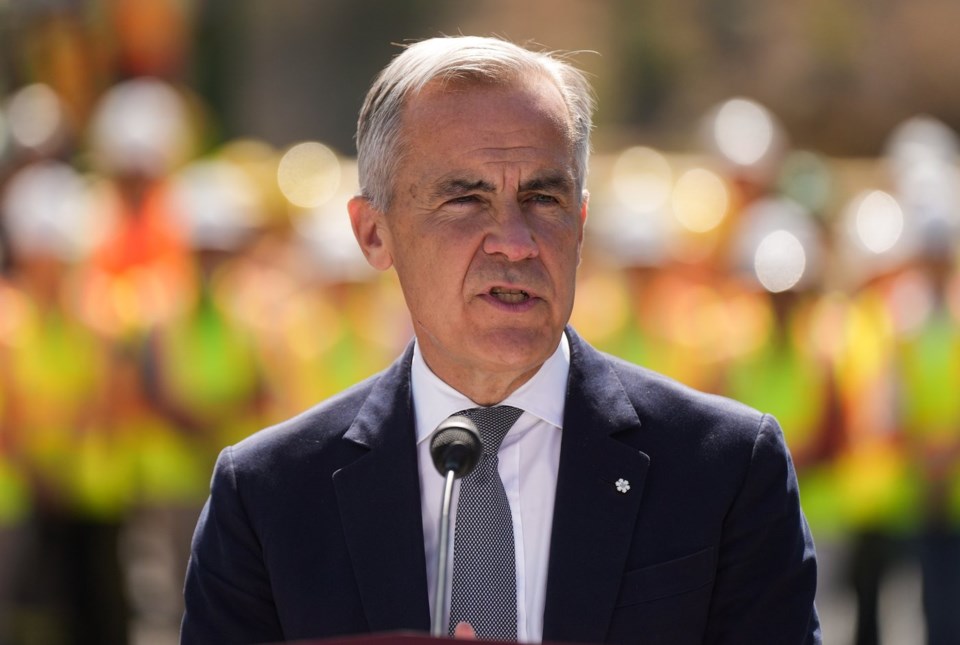OTTAWA — Ontario Premier Doug Ford is warning that U.S. President Donald Trump could choose to suddenly "pull the carpet out from underneath us" by opening up the trade agreement his administration negotiated with Canada during his first term.
He said Ottawa needs to prepare for that to happen this fall.
Ford made the comments after the country's premiers and Prime Minister Mark Carney met in private for the first time since Trump escalated his trade war by hitting Canada with a baseline 35 per cent tariff last week.
The new tariff, which took effect on Friday after the two countries failed to hit an Aug. 1 deadline to secure a new trade agreement, applies only to goods not covered by the Canada-United States-Mexico agreement on free trade, better known as CUSMA.
Ford said Trump likely won't wait for the scheduled review of the agreement next year.
"He's not waiting until 2026. At any given time, President Trump — not that he even follows the rules — he can pull the carpet out from underneath us on CUSMA tomorrow with one signature," Ford told reporters at Queen's Park in Toronto Wednesday afternoon as he called for swift action to bolster the economy.
"So let's be prepared. I think it'll be coming in November. He's going to come at us with double barrels, so we better be ready and throw everything and the kitchen sink at this."
Ontario is at odds with Saskatchewan over Canada's response to the escalating trade war. Ford has called for immediate retaliation, while Saskatchewan Premier Scott Moe is urging Ottawa to dial down its retaliatory tariffs.
"Maybe it's time for Canada even to at least not add additional counter-tariffs in this space, but to even consider removing some of the counter-tariffs that are harmful to Canadian businesses and Saskatchewan businesses today," Moe said during a radio interview earlier Wednesday, adding the country is currently largely "protected" under the CUSMA trade pact.
Ahead of the meeting with Carney, Ford said he's frustrated by the impacts of high U.S. tariffs on his province's economy and called again for retaliatory tariffs.
"You can't have tariffs on one side and not the other. I still stand by what I say — dollar for dollar, tariff for tariff. They understand strength, not weakness, and we should never, ever roll over and be weak," Ford told reporters at a news conference Wednesday in Thornhill, Ont.
Ford said he told Carney and the premiers that if Ottawa chooses not to hike tariffs in its response, the threshold at which steel products become subject to tariffs should be lowered.
"If people are concerned about hitting back, well, then there's the other alternative. Let's lower the quota for companies. When they come in, they get tariffs immediately," Ford said following the meeting with Carney.
Moe said his province is working to protect industries that are being hit hard by tariffs, including the steel sector.
"What we've done is pull forward a significant amount — 10 years, actually — of Crown procurement to support the steel industries here in Saskatchewan," he said.
Moe gave credit to Carney for his government's efforts to strengthen trade ties with other countries, including Mexico, particularly while Canada remains subject to China's canola oil and meal tariffs.
When asked to explain why his government ended up putting American liquor back on the shelves and returning to its standard procurement processes, Moe said the government already prioritizes Saskatchewan companies.
"We need to get to that space in a more solid form with our largest trading partner, the United States of America, and someone is going to have to take the early steps," he said, noting Alberta has also shifted its policies.
Alberta Premier Danielle Smith's office said she would not be issuing any statements ahead of the meeting.
Ford also called for large industrial projects that could lift national morale and make use of Canadian steel, something on the scale of building "an aircraft carrier."
He called on Ottawa to cut taxes and said the Bank of Canada should drop its interest rate.
"We have to get the governor of the Bank of Canada to lower those damn interest rates from 2.75," he said. "Knock 'em down. Build confidence.
"Let's work together on getting rid of the HST on homebuyers, and not just first (time) ones. Let's stimulate the market and we'll follow suit if the federal government does that."
Ford also said Wednesday he had a "good conversation" with U.S. Commerce Secretary Howard Lutnick on Tuesday that was "positive," and he believes the "prime minister is doing everything in his power to get a fair trade deal with the U.S."
Carney, who did not make himself available to media Wednesday, told a press conference in B.C. on Tuesday that he has not talked to Trump in recent days but would speak with him "when it makes sense."
The prime minister added about 85 per cent of trade with the U.S. remains tariff-free because of CUSMA.
Sector-specific tariffs, like the 50 per cent duty on steel, aluminum and copper, remain in place.
Carney also suggested he may lift counter-tariffs if that helps Canada in the ongoing trade dispute.
"We look at what we can do for our industry that's most effective. In some cases, that will be to remove tariffs," he said Tuesday.
Foreign Affairs Minister Anita Anand and Finance Minister François-Philippe Champagne were in Mexico City on Wednesday, part of a two-day mission to meet with Mexican officials and businesses on trade.
The Opposition Conservatives are fundraising off Carney's response to the escalating trade war.
"He ran his entire campaign on elbows up," said a Tory fundraising email Wednesday. "But his elbows dropped faster than temperatures in a Canadian winter while Trump put tariffs up."
— With files from David Baxter, Lisa Johnson in Edmonton, Alta. and Allison Jones in Thornhill, Ont.
This report by The Canadian Press was first published Aug. 6, 2025
Kyle Duggan, The Canadian Press




